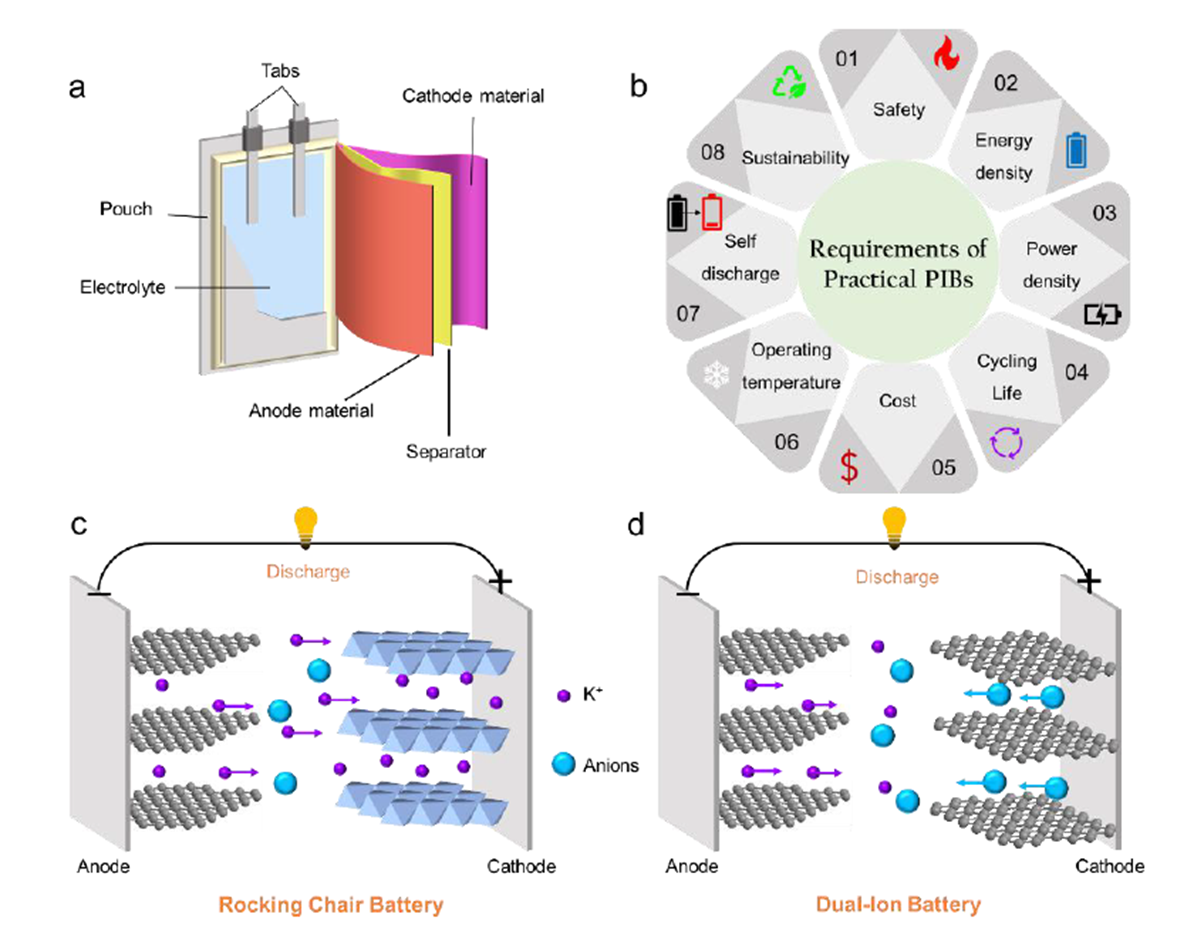
Exploring the fundamental properties of nanomaterials, and their applications

Collaborative Research
A collaborative research between CNI and Academia Sinica found low thermal conductivity in Sb-doped GeTe, which resulted from the dopant-induced changes in the phonon spectra. This study provides a new direction in phonon engineering of single crystalline thermoelectric materials beyond nanostructuring.

TENG
Novel fullerene-enhanced triboelectric nanogenerator (TENG) is demonstrated in which the C60 active layer when added to an already high-performance triboelectrode, further improves the TENG performance.

Prospects of Electrode Materials and Electrolytes for Practical Potassium‐Based Batteries
Potassium-ion batteries (PIBs) have attracted tremendous attention because of their high energy density and low-cost. As such, much effort has focused on developing electrode materials and electrolytes for PIBs at the material levels. This review begins with an overview of the high-performance electrode materials and electrolytes, and then evaluates their prospects and challenges for practical PIBs to penetrate the market. The current status of PIBs for safe operation, energy density, power density, cyclability, and sustainability is discussed and future studies for electrode materials, electrolytes, electrode-electrolyte interfaces are identified. It is anticipated that this review will motivate research and development that fill existing gaps for practical potassium-based full batteries so that they may be commercialized in the near future.

Graphene
Large-scale low-cost preparation methods for high quality graphene are critical for advancing graphene-based applications in energy storage, and beyond. Here, we present a sulfur-assisted method that converts benzene rings of tetraphenyltin into high purity crystalline graphene. The three dimensional few layer graphene microspheres (FLGMs) proved ideal for energy storage applications.
TEDxGreenville
Nanoscience, which propelled many game changing technologies, now relies on public acceptance. Nanotechnology is changing our energy landscape and healthcare, and nanotech can prevent another asbestos debacle.